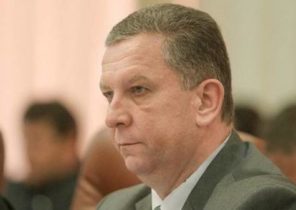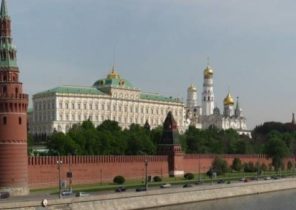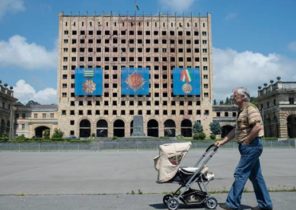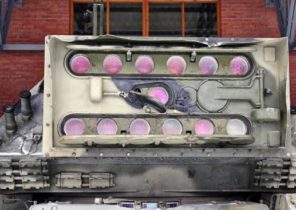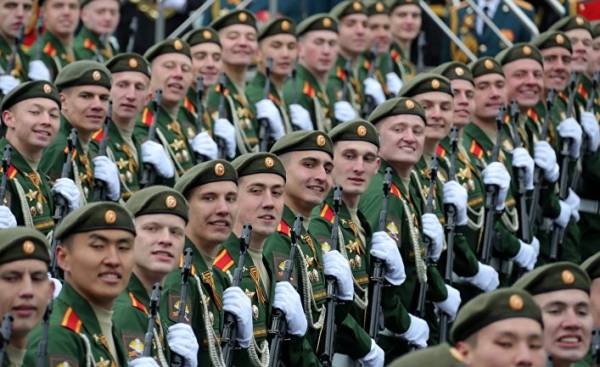
In July 1941 began the battle of Smolensk. Usually, it means a series of defensive actions and counterattacks of the red army, which slowed the advance of the German troops. And although in the end the Soviet forces had to give way, they managed to shake the confidence of the Germans, and some historians believe that the battle really contributed to the fact that the Wehrmacht did not take Moscow. But, despite all this, the battle of Smolensk belongs to the category of “forgotten battles” on the Eastern front.
The same category includes the Soviet offensive in Eastern Ukraine in the winter of 1942 — 1943, which, however, ended in defeat and brought the red army heavy losses. Is interesting that while the battles were fought in those places where today there are two “people’s Republic” Pro-Russian separatists, that is, in the Donbass. Then Stalin really overestimated the strength of the red army and dragged his generals in operation, which, as it turned out, was the last major victory of the Germans in the East. However, during these fights was something I could have for the further progress of the war truly fatal consequences.
The first of may 2017 in the Russian newspaper “Kommersant” published an article, “Five kilometers to Hitler”, which received great resonance beyond the borders of Russia. According to the article, 20 February 1943, the Nazi Fuhrer was in the Ukrainian city of Zaporizhia and left the local aerodrome in the moment when Soviet soldiers were standing just five kilometres away. But in the tanks with the red star then ran out of fuel, and the Soviet officers did not know about the extremely valuable “mining”.
In the Kommersant also wrote that information about this remarkable episode were obtained from recently declassified documents held in Russian military archives. Sounds very interesting, but the problem is that all this is no sensation. Yeah, this episode in General, really — it’s just that he is little known, and probably most of those “some five kilometers” was not, and the distance was somewhat larger.
Yes, once Hitler actually traveled to Zaporizhia, where he conferred with his generals of the fighting, and hastily left the city at a time when supposedly already was heard the firing of Russian tanks and artillery. Mention of this episode can be found in some books about the battles of that time in Kharkov and the Donbass, in particular in some Czech papers. I wrote about this questionable British historian and Holocaust denier David Irving. So what about the unique data that geologists have dug into the declassified archives of the question.
The hype around the idea that the Red army would kill or capture Hitler for two years before he died actually, of course, understandable. That noise rose around little-known historical fact, confirms that there is quite low awareness about this stage of the war on the Eastern front. As with some degree of exaggeration noted by American historian David Glantz, for many in the West, the Second world war on the Eastern front is just a sequence of four major battles that can be found in any textbook: Moscow, Stalingrad, Kursk and Berlin.
By the way, Glantz is the author of the term “the forgotten battle” and in his literary work tries to describe these Soviet-German battles, about which the West so far. Glantz said that the reason for this linguistic and political barrier: the majority of Western historians do not speak the Russian language, therefore, relies heavily on German sources. Glantz himself knows the language of Pushkin, so it is easy to use Russian sources.
However, Glantz is not loyal Russophile. In his books he does not spare the Red army and its commanders, including Zhukov, who accepted praise. By the way, Russia is slowly but surely rising tide of criticism of Zhukov because of his cruel methods. Anyway Glantz introduced Western readers with the so-called operation “Mars”. It was conducted in November — December 1942 Rzhev, but in contrast, it is parallel to the operation “Uranus” (or battle of Stalingrad) ended for the red army and Zhukov the fiasco.
The book of glanza often criticized for what he writes is unscientific and quotes that it is impossible to confirm archival documents and other sources. Glance reproach and that he is trying to trace the thoughts of historical figures. Exactly the same criticism and another author, which to some extent can be considered the ideological opposite of glance. Yes, we are talking about Victor Suvorov, as now calls himself Vladimir Rezun, a former Soviet military intelligence officer who fled to the West and wrote numerous books on Soviet military history, which caused fierce debate.
Suvorov popularized the hypothesis that in the summer of 1941 the Red army was planning a surprise attack on the Germans. The crushing defeat, which then suffered the Soviet armed forces was simply due to the fact that from the perspective of training, tactics and weapons the army was preparing only for an offensive war. So when the red army suddenly had to defend, she was on the brink of disaster. “Theory “Icebreaker””, developed by Suvorov, quickly gained both enthusiastic supporters and bitter opponents.
The second camp belongs including Glantz, and among the Russian historian Aleksei Isaev. Supporters of the theory are some representatives of the young generation of Russian experts, who do not wish to restrict themselves to Soviet dogma. Among them is mark Solonin, some of whose books have been translated into the Czech language, and Mikhail Meltyukhov. These young historians raise in his writings some controversial topics associated with the Second world war on the Eastern front, that is, the fact that the majority of Russians with great pride that still calls the great Patriotic war.
In come to light and new information on those topics that were “taboo”, for example on anti-Soviet Russian volunteers in the German army, the extent of the losses of the red army (including the “impertinent” question about whether the need for these horrendous losses), as well as on the negotiations about a separate peace with Hitler. Affected and the Molotov-Ribbentrop Pact, which even Putin himself called immoral, adding, however, that in the circumstances the Covenant was necessary and understandable.
It is noteworthy that these topics are raised only in a fairly narrow community of specialists, experts and fans, while the General public does not discuss them. She hears, rather, “sensations” like the kind published by “Kommersant”. In the public mind clearly dominates the official interpretation, which, freed from the Communist ideology, all the more emphasizes Russian patriotism and the defensive nature of the Soviet-German war.
In may 2014, raised a wave of criticism in connection with the new Russian law, which, according to his opponents, put all the opinions in addition to official, outside the law. But the act only says that crime is “spreading false information” about the actions of the USSR in the Second world war. By the way, that some early estimates were somewhat exaggerated, shows the obvious fact that this law has been in place for more than three years, and Russia continues to publish books of Suvorov and his supporters, as papers that discuss other sensitive issues associated with the era.
In fact, the most important the first paragraph of the law under which the crime is considered a denial of the facts, confirmed by the international Tribunal in Nuremberg. In other words, we are talking about banning propaganda of Nazism and prohibition of Holocaust denial. In Europe, these measures were taken long ago, but in Russia, surprisingly, they are not thought of until may 2014. However, voiced the opinion that this paragraph is part of a “propaganda offensive” of the Kremlin and its related media, often with “Nazism” considers a significant part of modern Ukrainian politics.
Anyway, the victory in the Second world war is one of the Central motifs of the modern Russian political and public discourse. A reference to history, or rather idealized form of the story, of course, is not exclusive and is common among other peoples (the Czechs not far behind here, which confirms, in particular, a collection of heroic tales called “Old Czech legends”). However, in modern Russia, to the heroic past is resorted to especially often.
In the knowledge of their own history and pride there is nothing wrong with it (in this sense, the West should learn from Russia), but overdoing it is not worth it. Potential appeal to the glorious history, of course, is great, but the question is, whether he is infinite. Almost “mythological” sense of history that prevails today in Russia and is supported by a number of “rituals”, including a military parade, of course, useful for the regime. However, this begs the question: what happens if (or when) there will come a sobering and before the eyes appear a harsh reality?

